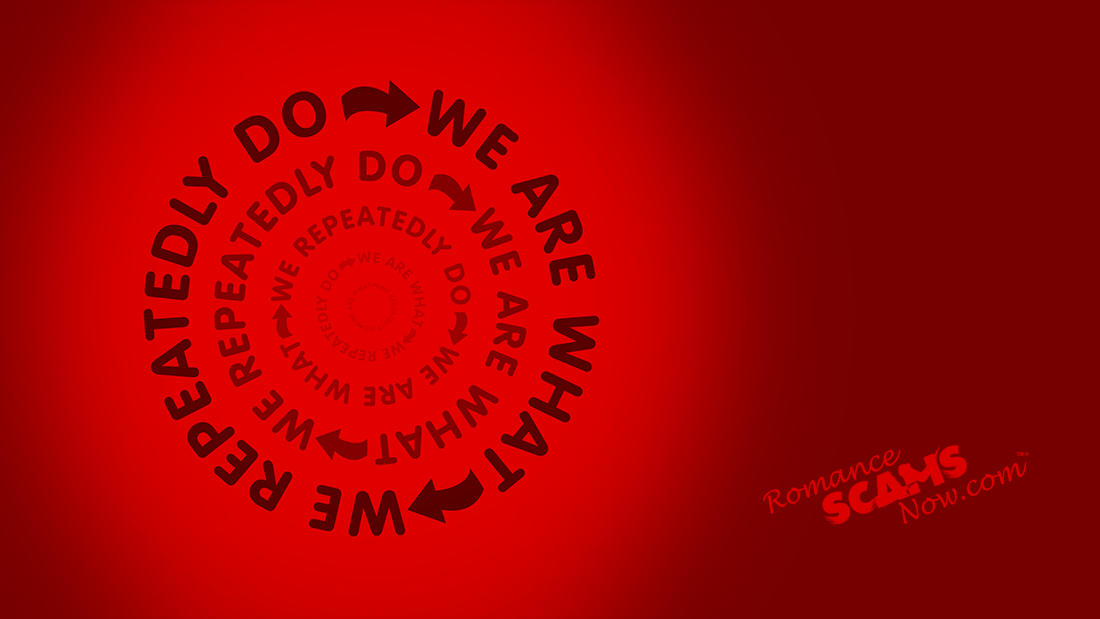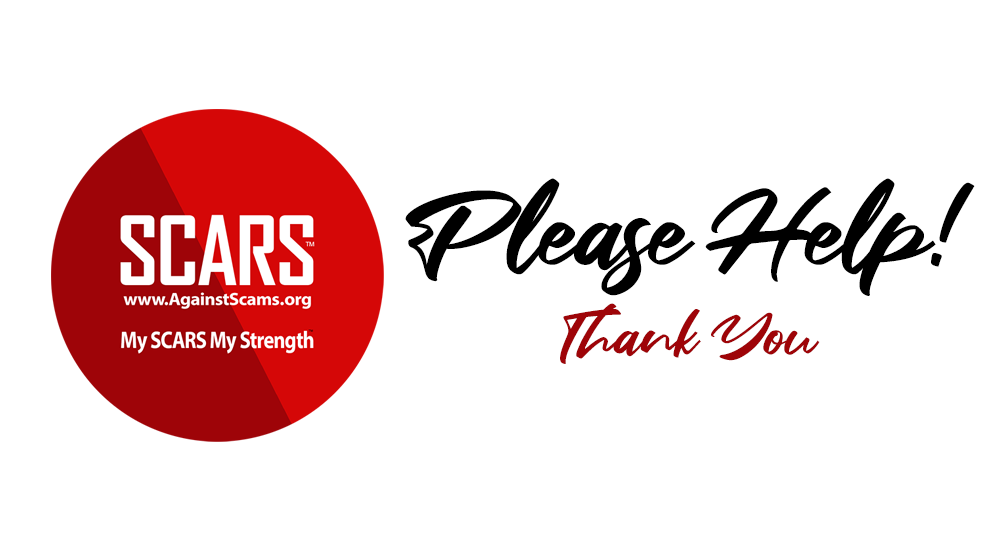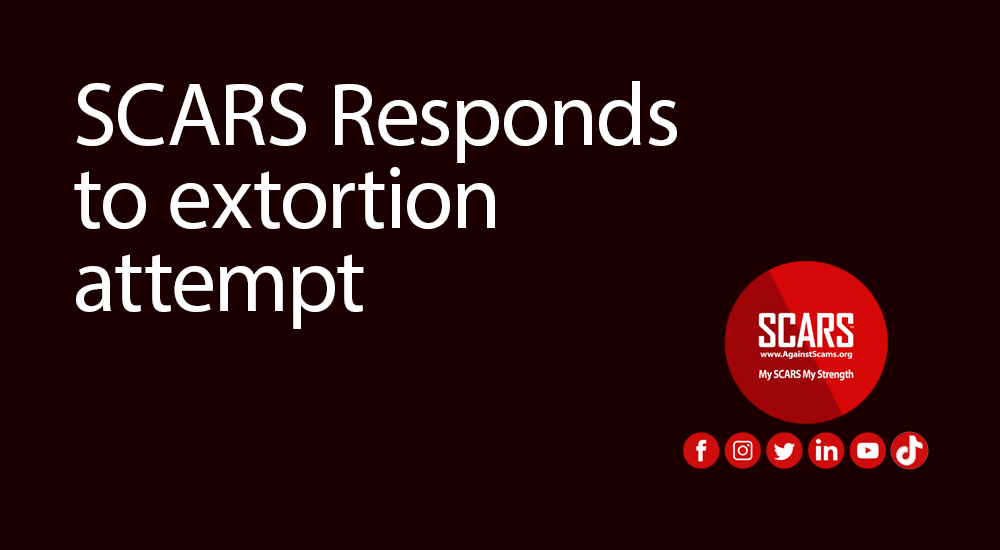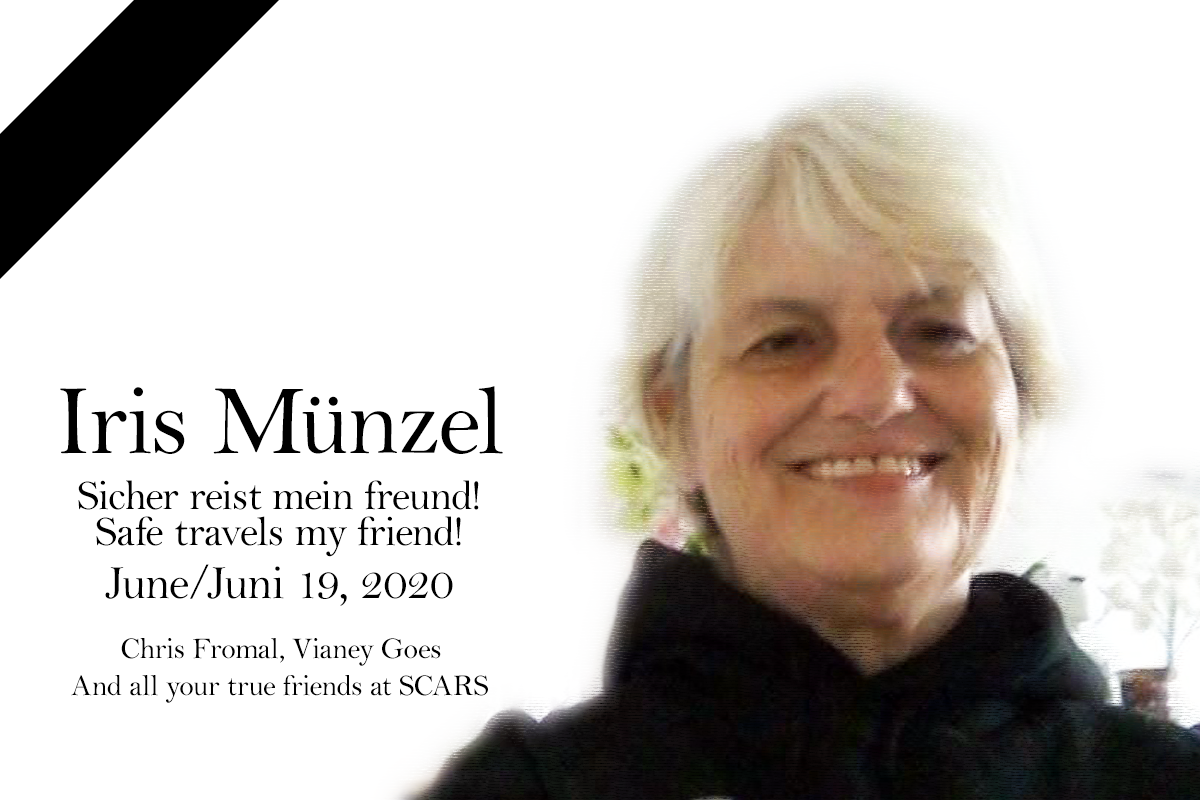
SCARS Institute’s Encyclopedia of Scams™ Published Continuously for 25 Years

Editorial: What Are We To Do?
For over 26 years the scammers were gaining ground. In fact, scams went up by at least 50% each and every year – in some years it doubled.
Let’s Be Very Clear
We Are In A War Against Online Scams!
Online scammers are able to operate with impunity throughout Africa, and in many other countries, without fear or prosecution. This War Against Online Scams leaves a million casualties a year (in 2016) – nearly 4,000,000 victims over the last 6 years (since 2010). By comparison only the war on drugs has produced this level of victimization! Yet, most people are doing nothing but complain.
The Time To Complain Is Over!
Now is the time for action, not just clicking Like or calling names on Facebook.
We Are What We Repeatedly Do!
Our organization has been educating the world about scammers for 26 years, since 1991 in the days of the old AOL (American OnLine). We have reached millions, but education alone wasn’t doing enough to stop or even slow down the madness.
In 2015 our founder, and a group of educators and professionals, formed SCARS (the Society of Citizens Against Romance Scams) because a new direction was needed. Education about scams was failing and no one was doing anything other than just cataloging endless scammer stolen photos and their insane messages. Yes, it did help people who were already victims confirm that they had been scammed, but did nothing – absolutely nothing – to reduce the number of scammers and the impact that they have on the public around the world. The scammers simply adapted, became smarter, more professional and systematic, and victimized greater numbers than ever before.
Most of the so-called anti-scammers do nothing but present their personal rage and incompetent opinions about how scammers work and organize the world over. The victims who flock to them are mislead about the true state of global cybercrime and the directions needed to combat it. The victims who follow them are endlessly trapped in the frustration of uselessness, and worthless misdirection.
As we became more public in our efforts to find new solutions and directions, we have been ruthlessly attacked by the scammers and their sympathizers (which we expected), and by other anti-scam pretenders afraid of losing their grip on their audiences. This has been attacks on our personnel and their families online. Attacks on the businesses that have supported and funded us. Even to the point of threats of violence against us and our families. However, none of this has deterred us.
In the development of effective counter measures we have formed partner relationships with social media and contributed to the United States Government’s efforts to both understand the scope of the problem, and to evolve their policies to counter the ever growing threat of cybercriminals.
We have provided policy statements and position documents leading to new directions for the U.S. Department of Justice which is showing results in apprehending orders of magnitude more fraudsters in West Africa and around the world. We reached out to the candidates in the last U.S. Presidential election, but only one candidate responded, and from that response it has resulted in two Presidential Executive Orders directly addressing online fraud and deception crimes (that is two more than in the previous 8 years). In addition we have worked to help support the Sextortion law that was drafted and passed in 2016, and a new law making its way through congress now. We are a lawful registered Victims’ Assistance & Support organization by the United States Department of Justice Office of Victims of Crime and their initiatives. We are also a partner of the United States Department of Homeland Security for their online crime initiatives, such as the Stop Think and Connect program.
While victims focus their attention on anyone that posts endless scammer photos – they are ignoring what is needed and the means to make real change.
As an organization, we are alone out here trying to help with viable new directions. We are trying to do this in a way the brings lasting and fundamental change.
Doing this is hard, not just hard work but also the toll that it take on everyone involved. It takes a real commitment to the future. It takes more than name calling on Facebook to create the change that is needed and be able to sustain it. We need to refocus on what works and ignore what doesn’t work. Each person reading this Editorial needs to understand this, and express their outrage in a productive way.
It starts by supporting the ONLY organization that is working to produce real change – by joining SCARS (www.AgainstScams.org). It costs you nothing – it’s free. By adding your name to their membership roles you increase the influence of SCARS in the minds of governments around the world. It is a small thing, but from individual grains of sand are continents built.
Things Are Getting Better
- In 2017, for the first time in 26 years we have seen a decrease in the number of new scam victims compared to 2016. We estimate that the decrease is between 20 to 25%.
- In 2017, we see a dramatic increase in press reporting about all forms of cybercrime.
- In 2017, we have seen an increase in the number of fraudsters arrested from just a handful in 2016 to more than 3 a day in 2017 (worldwide). More and more countries are making significant commitments to address scamming inside their own borders. Unfortunately that really does not include Africa (except countries such as South Africa, Egypt, and Morocco).
Unfortunately, we have also seen the connection between scams and terrorism growing, especially in West/Central African states centered on Nigeria & Kenya. This complicates the ability to use sanctions against the scammer nations. The side effects of this are also a significant rise in human trafficking and slavery in these same countries. At the center of the scamming plague is a fundamental national corruption that permeates their societies. Of course, there are exceptions, such as Rwanda. Even South Africa is falling victim to the anti-colonialism insanity that provided the root morality that scammers use to justify their acts – it is only fair because they were mistreated in the past – so the West deserves to be the victim now.
Romance Scams are a very personal assault, from which victims need significant time to recover. In some cases (no one knows what the percentage actually is), some will never recover and remain changed forever. People give away their every last cent, losing houses, marriages, friends and families – choosing to believe the fantasy instead of reason, and then after it is too late are left with nothing and no one. Yet they continue to believe the next charlatan they encounter, who claims they will get their money back or will punish the scammer for them by exposing more photos. From one scam to another scam. Some will take their own lives because they cannot face what has happened to them – in fact, approximately every 4 hours a victims takes their own life.
These are the things we see every minute of every day.
These are the reasons we spend our talent and treasure to help the world become a better place. Mostly doing this alone, with a small number of supporters, volunteers, team members, and the businesses that fund our operations. Working against scammers, hateful other individuals, and indifferent governments around the world is the environment we work in. We are labeled everything imaginable, and even our own children are attacked for this. Yet progress is being made, month after month.
Instead of recognizing the need for pragmatic change, we see most victims hide from the truth or engage in the endless futility of scammer watching or baiting. This is about changing the attitudes of victims as much as it is about combating scammers. It really is up to each of us to make the world a better place. Yes, there are thousands, if not millions, of distractions – but this need is crystal clear. When it comes to scams, Hope is a four letter word.
- The endless exposing of scammers is doing nothing.
- The endless scam baiting is doing nothing.
- The endless rage is doing nothing.
- The endless complaining and name calling is doing nothing.
Don’t be confused – this is not about a lack of compassion for victims. In fact, it is the exact opposite. Real compassion is not suggesting to victims that exposing yet another stolen photo is doing something. Real compassion is helping victims recover and move on, not forcing stolen fake faces on them endlessly. It is also about helping victims create meaningful change to help prevent or reduce future predatory victimization that could be their family or friends.
In summary, the only way to turn this situation around is coordinated real-world strategies that combat scammers where they live and work, by both helping and forcing governments to take real measures to address the root causes and corruptions that enable the global cybercriminal organizations to live in immunity and hide in plain sight. It is demonstrating to government that we will not tolerate this any longer. This is not done through meaningless petitions that don’t actually affect politicians or get their notice. It is done by affecting politician’s ability to be re-elected country by country, and this means a significant advocacy and policy group that can appeal to politicians sense of self-preservation and fear of defeat.
While this may have sounded a bit like a rant, it is really an appeal to help you understand what is at stake, and how your individual voice can add to these efforts for real change.
This change will not happen by joining a scammer exposure group on Facebook run by a guy in Russia or a woman in England, or a couple in Australia alone in their bedroom or kitchen. It will not happen by exposing stolen photos on social media. It will not come by clicking likes or making faces, or calling names. It will only happen through organization, the development of working relationships with national governments that have the power to impact scammers, expanding public communications that can reach people before they become victims, and budgets capable of supporting all of these activities.
If you really want to help and create change, your next step should be to join SCARS (at no cost), and then in the months to come work with SCARS to create local chapters to positively affect the hearts and minds of your government, law enforcement, and politicians. Plus, who knows what the trauma of a scam is like better than a scam survivor like you? You can help SCARS in the development of victims’ assistance initiatives in your own country as a local SCARS Chapter too.
Do you really want to see a change?
What will it be?
More useless complaints or real action?
It Is Up To You To Act Against Scams™
-/ 30 /-
What do you think about this?
Please share your thoughts in a comment below!
Table of Contents
LEAVE A COMMENT?
Thank you for your comment. You may receive an email to follow up. We never share your data with marketers.
Recent Comments
On Other Articles
- on Reporting Scams & Interacting With The Police – A Scam Victim’s Checklist [VIDEO]: “Yes, this is a scam. For your own sanity, just block them completely.” Feb 25, 15:37
- on Danielle Delaunay/Danielle Genevieve – Stolen Identity/Stolen Photos – Impersonation Victim UPDATED 2024: “She goes by the name of Sanrda John now” Feb 25, 10:26
- on Reporting Scams & Interacting With The Police – A Scam Victim’s Checklist [VIDEO]: “So far I have not been scam out of any money because I was aware not to give the money…” Feb 25, 07:46
- on Love Bombing And How Romance Scam Victims Are Forced To Feel: “I was love bombed to the point that I would do just about anything for the scammer(s). I was told…” Feb 11, 14:24
- on Dani Daniels (Kira Lee Orsag): Another Scammer’s Favorite: “You provide a valuable service! I wish more people knew about it!” Feb 10, 15:05
- on Danielle Delaunay/Danielle Genevieve – Stolen Identity/Stolen Photos – Impersonation Victim UPDATED 2024: “We highly recommend that you simply turn away form the scam and scammers, and focus on the development of a…” Feb 4, 19:47
- on The Art Of Deception: The Fundamental Principals Of Successful Deceptions – 2024: “I experienced many of the deceptive tactics that romance scammers use. I was told various stories of hardship and why…” Feb 4, 15:27
- on Danielle Delaunay/Danielle Genevieve – Stolen Identity/Stolen Photos – Impersonation Victim UPDATED 2024: “Yes, I’m in that exact situation also. “Danielle” has seriously scammed me for 3 years now. “She” (he) doesn’t know…” Feb 4, 14:58
- on An Essay on Justice and Money Recovery – 2026: “you are so right I accidentally clicked on online justice I signed an agreement for 12k upfront but cd only…” Feb 3, 08:16
- on The SCARS Institute Top 50 Celebrity Impersonation Scams – 2025: “Quora has had visits from scammers pretending to be Keanu Reeves and Paul McCartney in 2025 and 2026.” Jan 27, 17:45
ARTICLE META
Important Information for New Scam Victims
- Please visit www.ScamVictimsSupport.org – a SCARS Website for New Scam Victims & Sextortion Victims
- Enroll in FREE SCARS Scam Survivor’s School now at www.SCARSeducation.org
- Please visit www.ScamPsychology.org – to more fully understand the psychological concepts involved in scams and scam victim recovery
If you are looking for local trauma counselors please visit counseling.AgainstScams.org or join SCARS for our counseling/therapy benefit: membership.AgainstScams.org
If you need to speak with someone now, you can dial 988 or find phone numbers for crisis hotlines all around the world here: www.opencounseling.com/suicide-hotlines
A Note About Labeling!
We often use the term ‘scam victim’ in our articles, but this is a convenience to help those searching for information in search engines like Google. It is just a convenience and has no deeper meaning. If you have come through such an experience, YOU are a Survivor! It was not your fault. You are not alone! Axios!
A Question of Trust
At the SCARS Institute, we invite you to do your own research on the topics we speak about and publish, Our team investigates the subject being discussed, especially when it comes to understanding the scam victims-survivors experience. You can do Google searches but in many cases, you will have to wade through scientific papers and studies. However, remember that biases and perspectives matter and influence the outcome. Regardless, we encourage you to explore these topics as thoroughly as you can for your own awareness.
Statement About Victim Blaming
SCARS Institute articles examine different aspects of the scam victim experience, as well as those who may have been secondary victims. This work focuses on understanding victimization through the science of victimology, including common psychological and behavioral responses. The purpose is to help victims and survivors understand why these crimes occurred, reduce shame and self-blame, strengthen recovery programs and victim opportunities, and lower the risk of future victimization.
At times, these discussions may sound uncomfortable, overwhelming, or may be mistaken for blame. They are not. Scam victims are never blamed. Our goal is to explain the mechanisms of deception and the human responses that scammers exploit, and the processes that occur after the scam ends, so victims can better understand what happened to them and why it felt convincing at the time, and what the path looks like going forward.
Articles that address the psychology, neurology, physiology, and other characteristics of scams and the victim experience recognize that all people share cognitive and emotional traits that can be manipulated under the right conditions. These characteristics are not flaws. They are normal human functions that criminals deliberately exploit. Victims typically have little awareness of these mechanisms while a scam is unfolding and a very limited ability to control them. Awareness often comes only after the harm has occurred.
By explaining these processes, these articles help victims make sense of their experiences, understand common post-scam reactions, and identify ways to protect themselves moving forward. This knowledge supports recovery by replacing confusion and self-blame with clarity, context, and self-compassion.
Additional educational material on these topics is available at ScamPsychology.org – ScamsNOW.com and other SCARS Institute websites.
Psychology Disclaimer:
All articles about psychology and the human brain on this website are for information & education only
The information provided in this article is intended for educational and self-help purposes only and should not be construed as a substitute for professional therapy or counseling.
While any self-help techniques outlined herein may be beneficial for scam victims seeking to recover from their experience and move towards recovery, it is important to consult with a qualified mental health professional before initiating any course of action. Each individual’s experience and needs are unique, and what works for one person may not be suitable for another.
Additionally, any approach may not be appropriate for individuals with certain pre-existing mental health conditions or trauma histories. It is advisable to seek guidance from a licensed therapist or counselor who can provide personalized support, guidance, and treatment tailored to your specific needs.
If you are experiencing significant distress or emotional difficulties related to a scam or other traumatic event, please consult your doctor or mental health provider for appropriate care and support.
Also read our SCARS Institute Statement about Professional Care for Scam Victims – click here to go to our ScamsNOW.com website.










![SCARS™ Special Report: Rubberband Bank Wire Transfer Scams [Infographic] rubberband bank wire trasnfer scams SCARS™ Special Report: Rubberband Bank Wire Transfer Scams [Infographic] rubberband bank wire trasnfer scams](https://romancescamsnow.com/wp-content/uploads/2019/10/rubberband-bank-wire-trasnfer-scams.png)





I was Scammed by a Nigerian scammer, he used a innocent person and stoled his pictures, I have about 25 he goes by Mirando Walton